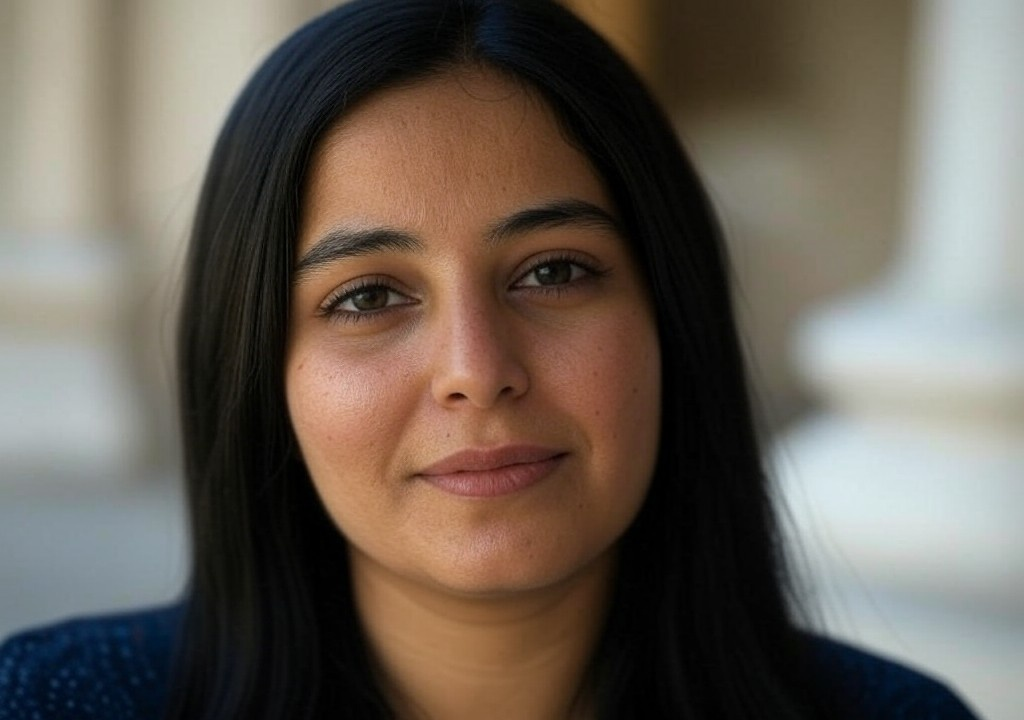“If not now, when?”
It was a question posed to me by Mona, my childhood best friend from Alexandria, during one of our marathon phone calls that span two cities, two time zones, and seemingly two separate lifetimes. Mona, ever the pragmatist, was also the sort of person who could wrap a molotov cocktail of wisdom in just four words and toss it straight at your insecurities. Her question came on the heels of me nervously confessing a wild, impossible dream—a dream I’d been sitting on for months. I wanted to leave my very respectable, stable life in Paris and move to London to pursue a PhD.
It doesn’t sound like the most thrilling premise now, does it? But let me set the scene. At the time, I was already second-guessing my decision to leave Alexandria years prior. I struggled with the weight of two cultural identities, never fully at home in either. Paris had been kind to me in its own aloof, you’ll-never-be-one-of-us way, but it still wasn’t easy. Would London, cold and gray with its rain-soaked gravitas, be any different?
Spoiler: I went. But it wasn’t smooth sailing. Monumental shifts in life rarely are.
Let me walk you through what taking the leap taught me—and why sometimes, the biggest risk you can take is also the most worth it.
The Leap of Faith: Leaving Comfort for the Unknown
When I finally told my Parisian friends about my decision to move, their reactions landed somewhere between polite disbelief and flat-out confusion. “Wait, aren’t British potatoes boiled to death?” one asked, as though bad cuisine was enough to deter me. My Egyptian aunts were equally perplexed. For them, a move like this was absurd because I already had stability—and God forbid you ever let that go.
The real issue was me. If you’ve ever uprooted your life, you know the drill: Doubts start whispering in your ear at night. Mine said things like, “What if you fail? What if you move and feel even more out of place? And, Zahra, love, what if you spend all your time justifying your research to people who’ll never care about Middle Eastern Studies anyway?”
I spent way too much time then treating my thoughts like fortune tellers instead of the melodramatic soap-opera stars they were. But one practical piece of advice got me moving forward: Instead of looking at the years-long journey ahead, I broke everything down into steps.
Deciding to leap doesn’t mean diving blindly; it means packing a parachute, rehearsing the landing, and still accepting the possibility you might emerge slightly bruised. But bruises? They’re where good stories come from.
Act One of Chaos: The Post-Leap Haze
Arriving in London didn’t exactly scream triumph. Within weeks, my bank account plunged into a new kind of existential crisis courtesy of sky-high rent, and my PhD documentation was still being processed. (Apparently, British bureaucracy didn’t buy into my optimism.)
Lonely and financially threadbare, I’d developed what I can only describe as a semi-toxic relationship with café seating. My goal for every day—a precarious balance between researching historic texts and not letting myself spiral into panic—became hunting down the cheapest chai latte within a four-mile radius. My poor mother called constantly, assuming I’d starved to death somewhere near Camden Market. Her advice on combatting my homesickness? “Find other Egyptians,” she said. Naturally. It’s our kryptonite and our cure.
And so I did. Or rather, I joined a Middle Eastern cultural group at the university, where I met two fellow caffeine-addicted misfits fluent in nostalgia, experimental cooking, and dissecting the moral dilemmas of Umm Kulthum lyrics. They became my family—the ones I didn’t tell about burning couscous five nights in a row but confided in about everything else.
The lesson? No leap is survivable alone. You’ll need your people—not dozens of them, but just the few who remind you why you jumped in the first place.
Bridging Identities: One Cup of Tea at a Time
Here’s the thing about risks: Sometimes, they force you to sit yourself down, stare into the metaphorical mirror, and say, “Who exactly are you, again?” That was me in London.
Being Egyptian in Paris had always felt like navigating two competing personalities. But in London, surrounded by other diaspora kids and academics, I suddenly realized everyone was asking, “Who am I?”—and for once, we weren’t rushing for answers. I started connecting deeply with others who straddled identities and built friendships out of shared uncertainties.
One funny way this shaped my life? Tea. In Paris, I’d avoided drinking it unless it came in a sleek glass served in a trendy café. (I blame the aesthetics of my French friends, who’d never let me survive such a bland beverage.) But in London, tea became ritualistic—a wry nod to my Egyptian roots colliding with the Brits’ obsession.
A cup at noon meant slowing down while I worked through research drafts. A chai latte with my uni friends marked collective therapy on awful rainy afternoons. Building bridges, it turns out, doesn’t happen in grand moments, and sometimes, it’s not even about philosophy. Sometimes, it’s about a biscuit, steeped leaves, and asking the perfect amount of milk.
Why You Need to Take a Risk (Even If It Sucks at First)
Risk is rarely dressed as a red-carpet moment. Usually, it’s a messy casserole of anxiety, unglamorous problem-solving, and occasional tears into keyboard keys. So is it worth it? Absolutely. Moving to London forced me to choose discomfort repeatedly: asking for help when I wanted to seem independent, admitting fears I’d tried to hide (mostly from myself), and reshaping my idea of success entirely.
I traded the safety net of knowing exactly who I was (even if it wasn’t quite right) for uncertainty—and guess what? It’s okay to swim in that uncertainty longer than you expect. In hindsight, risking stability for exploration was the first step to creating my version of “home” from scratch.
Takeaways for Your Own Risk Jump
-
Break It Down
Risk doesn’t have to be terrifying if you plan it into manageable steps. Make lists, prep contingencies, and keep snacks for emotional support. Snacks help more than you think. -
Embrace Awkward Beginnings
Whether it’s a more expensive city, a new job, or even saying “I love you” first—expect a lot of stumbles. The beginning is rarely Instagrammable. -
Find Your People
Risk isn’t bravery for bravery’s sake. It’s about connection: whether through strangers-turned-friends, self-discovery, or even rekindled bonds with old ones. Let those you meet be a reason not to give up. -
Drink the Tea
Both literally and metaphorically, create rituals of comfort in your new world—even if they look weird at first. They’ll ground you when everything else feels far away.
Conclusion: What Happens When You Jump
Here’s what they won’t warn you, but I will: When you take the leap, the outcome isn’t always one monumental change. Sometimes, it’s a thousand tiny ones. A new way to hold yourself, a deeper understanding of the person you want to be—and maybe, just maybe, a taste for “awful” British biscuits dunked in second-rate tea. Decisions add up. And they can transform you in ways you won’t believe until you’re sitting there, not as scared anymore.
Leap badly. Land awkwardly. But leap anyway.




















